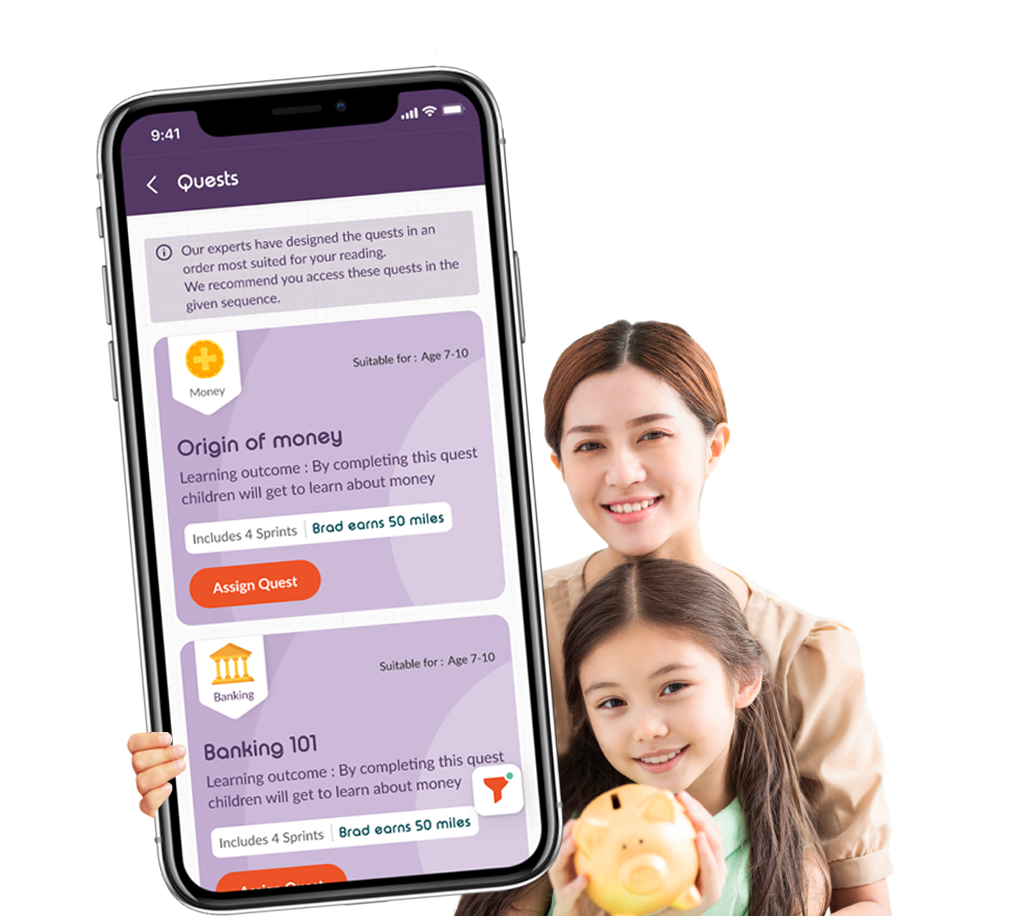5 ways pocket money equips children with financial skills for life
Putting money in your child’s hands is a powerful learning tool that sets them up for success
No matter how old your child is, it’s never too early (or too late) to teach them to manage money. As your child’s first teacher, early personal finance lessons at home are critical for their future financial well-being and have proven to help them grow to lead productive, independent lives.
Taking charge of their financial education doesn’t have to be a complicated affair. A simple, consistent way to start is to give them a weekly allowance, money that he/she can manage on their own and under parental supervision. While the subject of pocket money can be polarising, on a larger scale there are many valuable financial and life lessons that come with letting them have money to practice with.
If you’re still on the fence about whether you should dole out an allowance, these are some ways pocket money can teach children financial independence for life.
It Teaches Healthy Money Habits
How will a child know to earn, save and spend responsibility if they are not given power and autonomy over a small sum of money? A survey by OCBC showed that two in three Singaporean and permanent residents (PRs) do not have enough savings to last them beyond six months, a worrying statistic amidst these. Sidestep this problem by growing your child’s financial literacy from an early age and instilling money-saving habits from the get-go. Pull Out Blurb: Studies show that children who receive some form of pocket money tend to be more mature, have increased confidence, suffer less peer pressure, and are more financially independent as they learn money management skills from an early age.Children Learn The Value of Money
In today’s age of digital transactions, it’s easy for kids to think that money appears out of nowhere – and that they don’t need to do anything to earn it. An allowance reinforces that money is a finite resource and a way to prioritise wants and needs. It’s also a super simple avenue to teach them the value of things – $5 for a weekly bubble tea works out to be $20 a month, enough to buy a new Lego toy – and help them guard against unnecessary spending.They Become Familiar With Spending Limits and Savings Goals
One of the best lessons pocket money teaches a child is the power of delayed gratification. Set them up for success by helping them create money goals and earn milestones using Milestone’s Save and Earn features. While you’re at it, make it fun, so they’re encouraged to keep track of their progress and develop a lifelong habit of setting, executing, and meeting personal goals.Allow Them to Make Safe Money Mistakes
Money mistakes are bound to happen at some point in life. The earlier you teach a child how to handle their finances, the better equipped they will be. Losing a week’s allowance on a poor-quality toy purchase is not the end of the world but spending all their college tuition money at a casino brings much heavier consequences. By giving your child an opportunity to “practice” with money in real life they learn about the importance of saving, the value of money, and build their ability to make better purchasing decisions.Help Them Achieve Financial Security From Young
Creating an open attitude about money goes a long way to growing a child’s financial confidence and aptitude. Introducing personal finance topics over a monthly dinner discussion or playing fun financial quests on Milestone is a light-touch way to broach the concept of money. This way they’ll likely be more open to learning and researching how to grow their money in a real world setting. Milestone Edutech Pte. Ltd.
Milestone Edutech Pte. Ltd.JustCo, Centrepoint Singapore,
176 Orchard road, #04-04,
Singapore. 238843

COPYRIGHT 2021-2022 I Privacy Policy I Terms and Conditions




